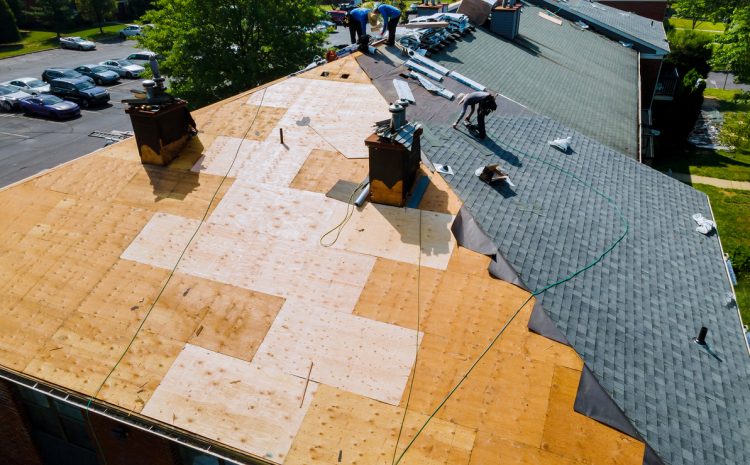When Hiring a Roofing Contractor in Florida: 10 Essential and Crucial Considerations

Your roof is one of the most vital components of your home, shielding you and your belongings from the elements. When it’s time for repairs or replacement, selecting the right roofing contractor in Florida is essential. With so many options to choose from, it can be difficult to determine which roofing contractor in Florida is the best fit for your needs. To assist you in making an informed choice.
Here are ten crucial considerations to keep in mind when hiring a roofing contractor in Florida.
1. Credentials and Licensing
Ensure that the contractor you choose is properly licensed and certified to perform roofing work in your area. Licensing requirements vary by state, so it’s essential to verify that the contractor meets all necessary qualifications. Additionally, look for certifications from reputable industry organizations, such as the National Roofing Contractors Association (NRCA), which indicate a commitment to excellence and professionalism.
2. Insurance Coverage
Roofing work can be risky, so it’s crucial to hire a roofing contractor in Florida with adequate insurance coverage. Verify that the contractor carries both liability insurance and workers’ compensation insurance to protect you in case of accidents or property damage during the project. Request to see certificates of insurance and ensure that coverage is current and sufficient.
3. Experience and Expertise
Experience matters when it comes to roofing projects. Look for a roofing contractor in Florida with a proven track record of success and extensive experience in the type of roofing work you need. A seasoned contractor will have the knowledge, skills, and expertise to handle various roofing materials, styles, and challenges effectively.
4. Local Reputation
Consider the contractor’s reputation within your local community. Seek recommendations from friends, family, neighbors, and online reviews to gauge the contractor’s reputation for quality workmanship, reliability, and customer service. A contractor with a strong local reputation is more likely to prioritize customer satisfaction and deliver excellent results.
5. Written Estimates and Contracts
Obtain written estimates from multiple contractors and carefully review each proposal to ensure it includes detailed information about the scope of work, materials, timeline, and costs. Avoid contractors who provide vague or verbal estimates, as these may lead to misunderstandings or disputes later on. Once you’ve chosen a contractor, make sure to sign a written contract that outlines all terms and conditions of the project to protect both parties’ interests.
6. Warranty Coverage
Inquire about the warranty coverage offered by the contractor for both materials and workmanship. A reputable contractor should stand behind their work with a comprehensive warranty that provides protection against defects and ensures peace of mind for years to come. Be sure to understand the terms and limitations of the warranty before signing any agreements.
7. Communication and Accessibility
Effective communication is essential throughout the roofing project. Choose a contractor who is responsive, accessible, and easy to communicate with. They should be willing to answer your questions, address your concerns, and keep you informed about the progress of the project every step of the way. Clear and open communication helps ensure a smooth and successful roofing experience.
8. References and Portfolio
Ask the contractor for references from past clients and request to see examples of their previous work. A reputable contractor will be happy to provide references and showcase their portfolio of completed projects. Take the time to contact references and inspect completed jobs to assess the quality of the contractor’s workmanship and craftsmanship.
9. Safety Practices
Safety should be a top priority on any roofing project. Inquire about the contractor’s safety practices and protocols to ensure that they prioritize the well-being of their workers and adhere to industry safety standards. Ask about safety training, equipment, and procedures to minimize the risk of accidents and injuries during the project.
10. Local Knowledge and Experience
Choose a roofing contractor in Florida who is familiar with the local climate, building codes, and regulations in your area. Local knowledge and experience are invaluable when it comes to selecting the right roofing materials, designing a roof that can withstand local weather conditions, and obtaining necessary permits and approvals. A local contractor will also be more accessible for follow-up inspections, maintenance, and warranty services.
Conclusion
Hiring a roofing contractor in Florida is a significant decision that can have long-lasting implications for the safety, durability, and value of your home. By considering these ten crucial factors, you can make an informed choice and select a contractor who is qualified, reliable, and trustworthy. Remember to do your research, ask questions, and trust your instincts when choosing a roofing contractor in Florida to ensure a successful roofing project that meets your needs and exceeds your expectations.
Roofing contractor in Florida play a crucial role when your roof claim has been denied. They provide thorough inspections to assess the damage accurately, which can support your appeal. Their expertise ensures that all damage is documented, often uncovering issues that might have been overlooked. Roofing contractor in Florida can also provide detailed estimates and repair plans that align with insurance requirements. This professional insight strengthens your case and helps you challenge the denial effectively. For expert public adjuster and roof contractor referral services, contact us, to ensure you receive the compensation and repair assistance you deserve.



